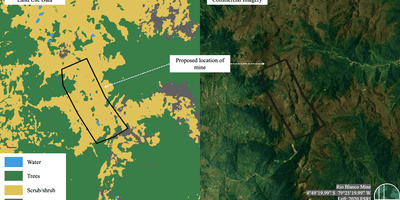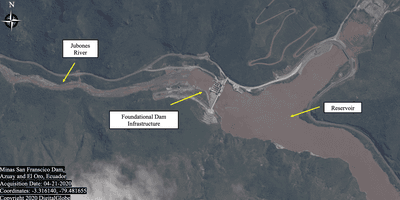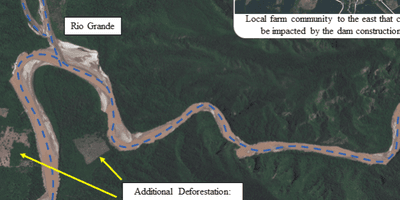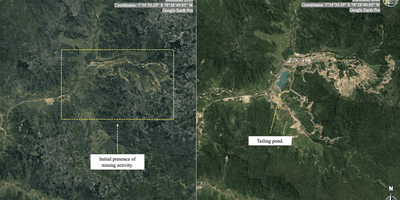Articles By This Author

Exploring China's Footprint in the Andes Mountains: Copper Mining in Peru
Expansion of copper mining is driving economic growth in Peru, which coincides with increased Chinese demand and investment in copper mining. Chinese involvement in Peru's mining sector varies by project and is often obfuscated through intermediary company involvement in mine acquisition or construction.

China's Growing 5G Presence in South America Poses Potential Security Threats to the Region
In 2017, a Chinese national security law mandated citizens and business entities comply with requests for information by Chinese intelligence agencies. With this law, the presence of Chinese telecommunications companies in South America poses potential security threats.

Environmental Impacts of Conflict in Ukraine: Exploring Attacks on Oil Refineries and Watershed Degradation
The Russian invasion of Ukraine presents potential environmental consequences. Since early 2022, Russian forces have attacked multiple oil refineries across the country. Watershed analysis indicates that contamination from these attacks could pollute lands, groundwater, and seep into nearby surface waters.

Made in China 2025 and Shanghai's Zhangjiang High-Tech Industrial Park
Zhangjiang High-Tech Industrial Park predates the 2015 inauguration of Made in China 2025 (MIC25). However, development in the park reaffirms MIC25 goals. Activity in the park reflects the policy priorities of MIC25: talent recruitment, foreign investment, and green development.

China's BRI in Latin America: Case Study – Hydropower in Ecuador
In contrast to our findings of BRI hydroelectric power projects in Bolivia, in Ecuador, we observe fewer problematic environmental impacts in the majority of Chinese projects, with several accompanied by substantial local community development initiatives.

China's BRI in Latin America: Case Study - Hydropower in Bolivia
In line with the push for environmentally friendly Belt and Road Initiative (BRI) infrastructure projects and Bolivia's former President Evo Morales' "2025 Patriotic Agenda" to transform Bolivia into a regional energy hub, China has supported six hydropower energy projects in the country. The success of these projects vary, and are more dependent on domestic factors in Bolivia than the actions of China.

Exploring China's Footprint in the Andes Mountains: Copper Mining in Ecuador
Ecuador's desire to become a global exporter of copper coincides with increased Chinese demand for and investment in copper mining. Both copper mines in Ecuador are owned by the same Chinese company. The inauguration of mine construction and activity has led to negative environmental damage and forced relocations of indigenous communities at both mines.